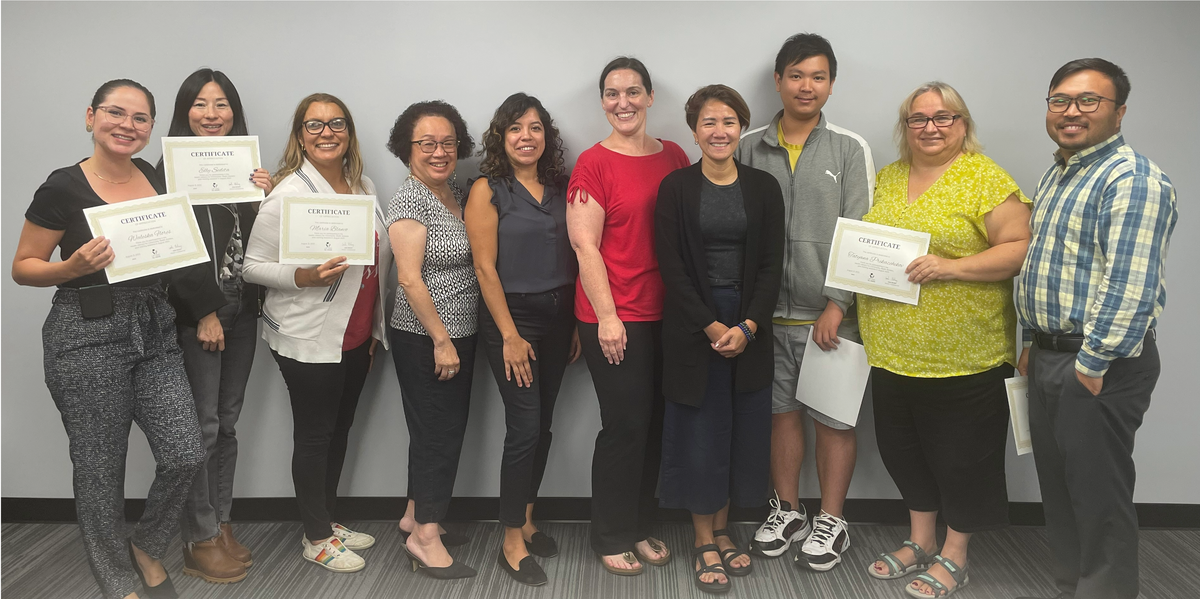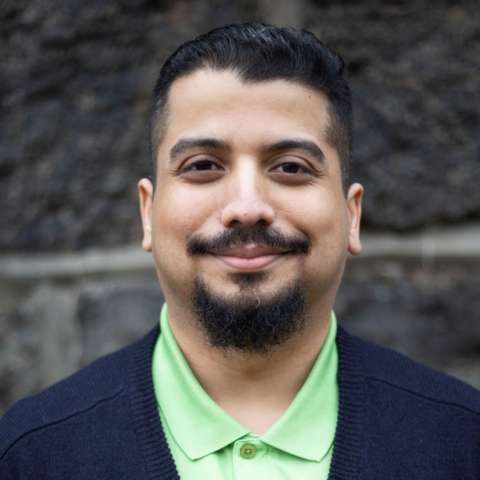Updated November 2023
This page highlights local projects, activities, and success stories from communities across Maryland. Find inspiration and connect with innovators and community leaders who are moving fearlessly forward with plain language and language access.
Frederick County - Lifting All Voices
Community Health Workers
The Horowitz Center is partnering with community health workers (CHWs) from the Asian American Center of Frederick (AACF) to share plain language COVID-19 and health information with community members from various language and cultural backgrounds. Together with bilingual, bicultural CHWs, the team creates culturally and linguistically appropriate materials and messages in up to nine different languages, incorporating CHWs’ expertise to select appropriate images, colors, and wording.
The project also offers CHWs training on communication and connection skills they can immediately put into practice in the field. Training sessions focus on practices like using plain language and teach-back, moderating speech speed, taking turns talking and listening, and engaging respectfully while acknowledging cultural differences. While the Center has trained other audiences on similar concepts, the CHW training sessions include examples and practice exercises based on CHWs’ specific needs and experiences.
The Horowitz Center team is incorporating feedback from the CHWs, including their personal stories about misunderstandings around language and culture. “[CHWs] have some fantastic stories to share from their own experiences,” said Leah Richey, project coordinator. “We want [the training] to be relevant to CHWs who serve a variety of communities and in different capacities.”
The training series is available to any organization or agency that employs community health workers and can be conducted in person or online. The Horowitz Center intends to offer this training a few times a year as professional development.
For more information about CHW training opportunities, email healthliteracy@umd.edu.
Language Access
Lifting All Voices (LAV) is a two-year project that makes it easier for people in Frederick to get accurate information about COVID-19 vaccines and tests. LAV has helped everyone, including people with Limited English Proficiency (LEP), have access to clear and easy to understand information.
LAV worked together with community health workers (CHWs) who understand the local culture and speak the languages of different communities to create clear content. They helped design and deliver content that prioritized the cultural preferences, primary language, and concerns of LEP communities in Frederick. The partnership with CHWs helped communities access the COVID-19 information they needed to stay as healthy as possible. The video below was created with and for Burmese speakers, and is one example of the resources available in the Lifting All Voices resource library.
Baltimore City - HealthCare Access Maryland
Through partnerships with the New Song Community Learning Center, an institution to bring people together to revitalize West Baltimore, Healthcare Access Maryland (HCAM) can bring in the community to learn about different resources. Richard Amador, HCAM Outreach Manager, talked to the Hub about HCAM's work at the October 4 Convening.
“A lot of these resources are like loose threads,” Amador said. “We need to figure out a way to knot them in strategic places.”
For instance, having a website or social media is good, but if resources are physically present they are more accessible, Amador said. To help with this, the Consumer Health Information Hub can organize, standardize, and disseminate information.
Knowing where materials will be available and if the materials will be available to local health departments is important. “I would love to see local health departments get more creative with how they engage communities,” Amador said.
At Healthcare Access Maryland, employees volunteer at well-attended food distribution days. People who apply for financial assistance in the state-based health insurance marketplace often need food support.
“We allow our employees to volunteer during the workday at those food distribution days so that they become trusted resources in the community,” Amador said. “The conversation doesn’t always need to start with health insurance. People like to see that you’re helping in other ways.”
Amador would like to partner with agencies to promote literacy for people who read in their native language but not in English.
“When it comes to outreach and community engagement, the sky’s the limit,” Amador said.

